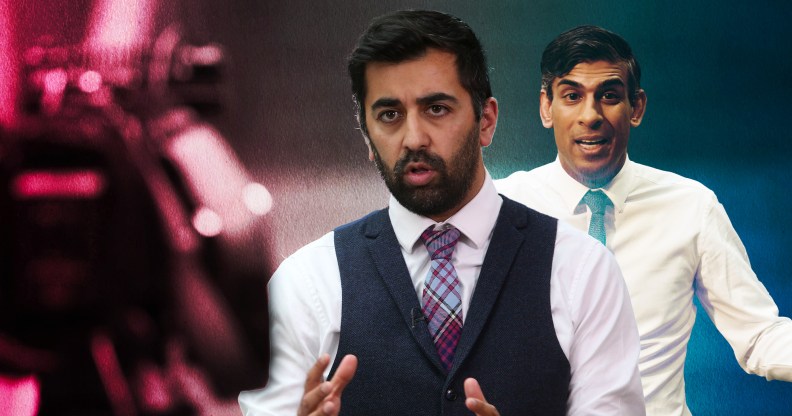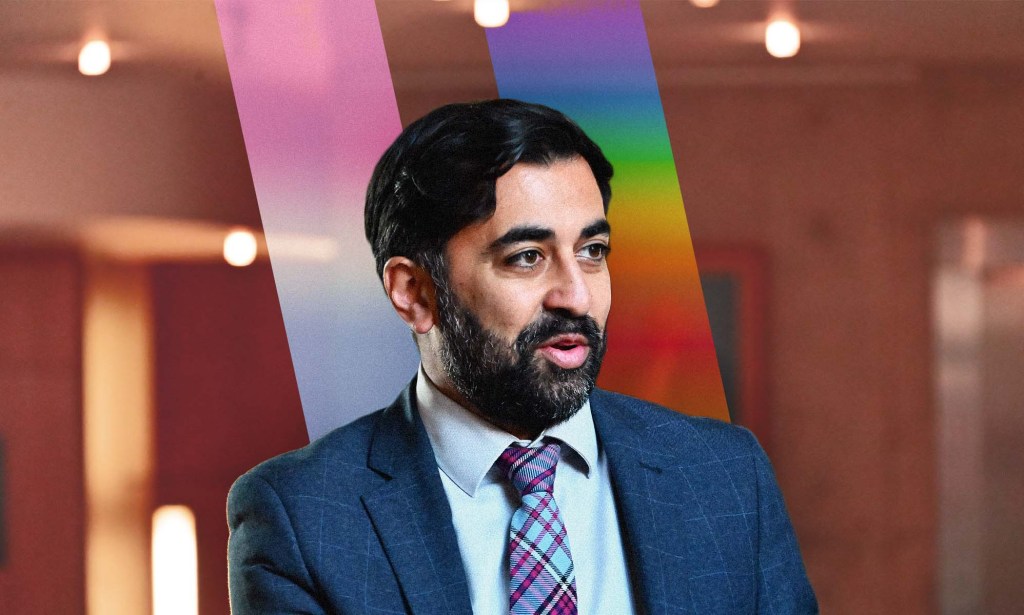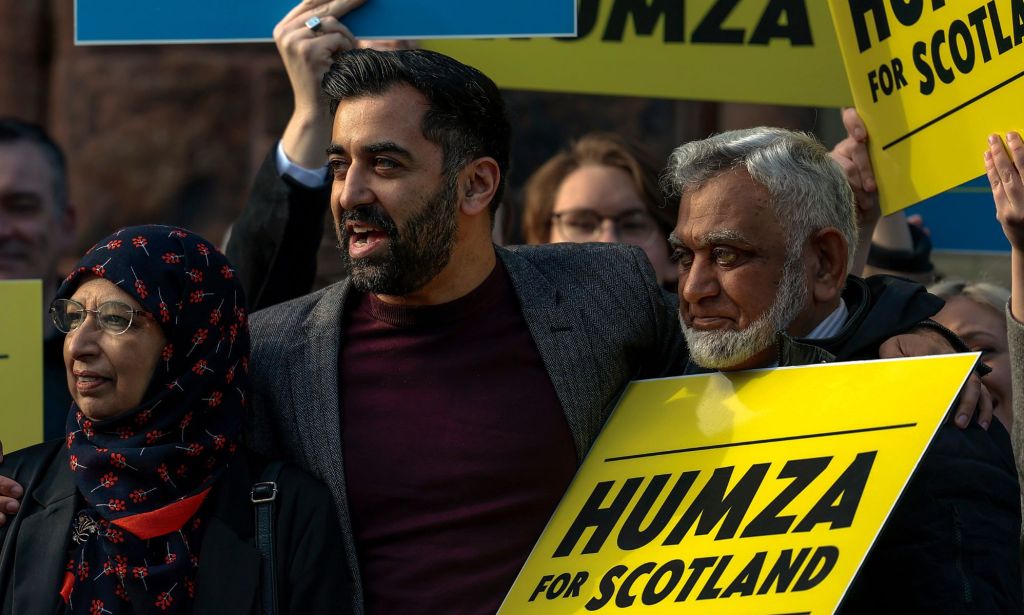SNP’s Humza Yousaf ‘doesn’t believe’ Tories care about trans rights: ‘They’re trying to drive a wedge’

Humza Yousaf will challenge the UK government’s Section 35 order. (Getty)
SNP leadership hopeful Humza Yousaf has condemned the Tories for using trans rights as fuel for a “culture war”.
Humza Yousaf told PinkNews that if he becomes first minister, he would move ahead with a legal challenge to the UK government’s blocking of Scotland’s gender recognition reform, and would be prepared to push forward with a Scottish bill to ban conversion therapy, if needed.
The Tory government blocked Scotland’s gender reform bill in January, using, for the first time in history, Section 35 of the Scotland Act to prevent it becoming law.
On Wednesday (1 March), Tory equalities minister Kemi Badenoch said she had “expressed concerns” about the bill before its passing, and that it is now “up to [the SNP] to reach out” with a view to amending the bill to make it more palatable to Westminster. She said she was not looking to roll back trans rights.
But Yousaf said that he doesn’t believe “there’s any good intention from the Westminster government”, and that they are simply using trans rights as a “culture-war issue”.
Asked if he’d be prepared to amend the bill, Yousaf told PinkNews: “I don’t believe them. I just do not believe them.”
He said that Shona Robison, Scotland’s cabinet secretary for social justice, had met with Badenoch “and said to her very clearly: ‘If there is an amendment that you want to see, bring it forward, and we will give it consideration.’
“[Badenoch] and Alister Jack, the Scotland secretary, [have] refused to come forward with any amendment. Why? Because this, for them, is a culture-war issue. It’s an issue to try to drive a wedge between communities.”
Yousaf continued: “I don’t think there’s any good intention from the Westminster government. And that’s why the use of the Section 35 has to be fought against, we absolutely have to stand up against it. If we don’t… then I’ve got no doubt whatsoever that they will strike a red pen through legislation that they do not like, that they disagree with, and that they want to use as part of this culture war. I’ll have no part of it.”

Robison has previously told PinkNews that she spoke to Badenoch in a “hastily arranged” meeting, during which the Tory minister “expressed some general concerns that were out of the briefings from other organisations, but at no point [asked] for specific amendments or indicate that there was a Section 35 order being planned”.
Humza Yousaf would ban conversion therapy for all LGBTQ+ people
Humza Yousaf was also critical of the Tories’ continued delays in banning conversion therapy. Outgoing first minister Nicola Sturgeon had said that Scotland would legislate its own ban before Rishi Sunak’s government announced in January that it was preparing draft legislation.
But Yousaf said he doesn’t “want to be held back by a UK government that… often drags its feet… that are trying to exclude certain groups, the trans community, for example, in this regard”.
Under Boris Johnson’s premiership, trans people were going to be excluded from the UK ban on conversion therapy. Sunak has u-turned on this, and is said to be moving forward with an inclusive ban.
Yousaf also commented on the case of Isla Bryson, the convicted rapist who came out as a trans woman while awaiting trial.
Bryson was temporarily placed in a women’s prison, away from other inmates, before being moved to a men’s facility. The case sparked intense debate on where trans prisoners should be held and has led to a tightening of rules in Scotland as well as in England and Wales, meaning that trans women remanded for violent offences will not be detained in the women’s prison estate.

Yousaf said Bryson should never have been in a women’s prison – he’s previously said he doubts her trans identity is genuine.
“In Isla Bryson, you’ve got a disgustingly deceptive manipulative individual who, by any account, is trying to manipulate and abuse a system to make life easy for themselves.
“But the trap we cannot fall into, because of this one disgusting, despicable individual who’s trying to abuse a system… we’ve got to make sure we don’t use the one bad example as the means by which to roll back rights that have been around for many, many years.”

